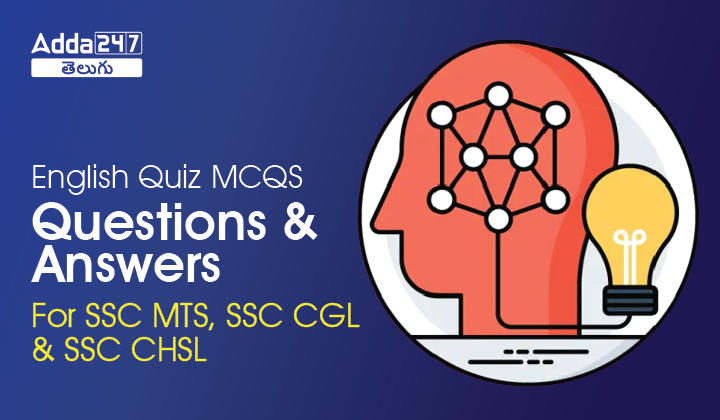English MCQs Questions And Answers: English is one of the most important scoring subjects for all TS And AP State level exams like APPSC Group 1,2,3, and 4, SSC MTS, CGL & CHSL, Bank, AP Police, TS Police, TS High Court & LIC AAO etc. In this article we are providing English MCQs Questions and answers, these MCQs questions and answers will definitely helps in your success.
English MCQs Questions And Answers: ఆంధ్రప్రదేశ్ మరియు తెలంగాణ లో అత్యంత ముఖ్యమైన మరియు ప్రతిష్టాత్మకమైన పరీక్షలు పోలీస్ మరియు గ్రూప్-1,2,3 అలాగే UPSC లలోనికి చాలా మంది ఆశావహులు ఈ ప్రతిష్టాత్మక ఉద్యోగాల్లో కి ప్రవేశించడానికి ఆసక్తి చూపుతారు.దీనికి పోటీ ఎక్కువగా ఉండడం కారణంగా, అధిక వెయిటేజీ సంబంధిత సబ్జెక్టులను ఎంచుకుని స్మార్ట్ అధ్యయనంతో ఉద్యోగం పొందవచ్చు. ఈ పరీక్షలలో ముఖ్యమైన అంశాలు అయిన పౌర శాస్త్రం , చరిత్ర , భూగోళశాస్త్రం, ఆర్ధిక శాస్త్రం, సైన్సు మరియు విజ్ఞానం, సమకాలీన అంశాలు చాల ముఖ్యమైన పాత్ర పోషిస్తాయి. కాబట్టి Adda247, ఈ అంశాలకి సంబంధించిన కొన్ని ముఖ్యమైన ప్రశ్నలను మీకు అందిస్తుంది. ఈ పరీక్షలపై ఆసక్తి ఉన్న అభ్యర్థులు దిగువ ఉన్న ప్రశ్నలను పరిశీలించండి.
 APPSC/TSPSC Sure shot Selection Group
APPSC/TSPSC Sure shot Selection Group
English MCQs Questions And Answers
English-Questions
Directions (1-10): Identify the best way to improve the bold part of the given sentence. If there is no improvement required, select ‘no improvement’.
Q1. As per the reports, women in Pakistan are shut away of the formal financial system.
(a) No improvement
(b) Shut off
(c) Shut out
(d) Shut in
Q2. The 50 cars the German automaker wanted to sell by the end of 2021 were lapped up against in a month.
(a) Lapped over
(b) Lapped up
(c) No improvement
(d) Lapped against
Q3. Let’s go to the circus tonight, shall we?
(a) No improvement
(b) Can we
(c) Didn’t we
(d) Shouldn’t we
Q4. Complex carbs like chapati, potato and rice could not be eliminated from the diet as they are high in fiber and provide energy for body functions.
(a) Will
(b) Might
(c) No improvement
(d) Should
Q5. Barely had Ajay started the presentation then Vinit started questioning.
(a) Than
(b) No improvement
(c) When
(d) That
Q6. The mango had been known to Indians since very early times.
(a) Can be known
(b) has been known
(c) was known
(d) No improvement
Q7. Alexander the Great, whose death on the banks of the Euphrates River in June 323 BCE was attributed to malaria, shared that fate with numerous illustrious victims.
(a) Whom
(b) Who
(c) Which
(d) No improvement
Q8. He said “Make yourself in home” after inviting me to his place.
(a) With
(b) On
(c) No improvement
(d) At
Q9 With the creation of the internet, it gives us excess to information at a twenty-four-hour rate.
(a) Access to
(b) Access of
(c) No improvement
(d) Access for
Q10. His grandmother was directed to take complete rest by the doctor.
(a) Advised
(b) Informed
(c) Told
(d) No improvement
Solutions
S1. Ans (c)
Sol. The correct answer is option c.
Replace ‘Shut away’ with ‘Shut out’ to make the sentence grammatically and contextually correct.
Shut out – to exclude someone or something.
Shut off – To close off; isolate.
Shut in – To force someone or something to be confined within an enclosed space.
Shut away – Imprison or remove someone’s freedom.
S2. Ans (b)
Sol. The correct answer is option b.
Replace ‘were lapped up against’ with ‘lapped up’ to make the sentence grammatically and contextually correct.
Lap up – to buy, or do something very enthusiastically, to respond to enthusiastically or accept eagerly.
Lap over – To lie partially on or over something; to overlap something.
Lap against (something) – Of water, to break, beat, or splash gently against something, as due to a current or tide.
Lap (up) against something – [for waves] to splash gently against something.
S3. Ans (a)
Sol. The correct answer is option a.
The given sentence is grammatically and contextually correct.
A question tag is a special construction in English. It is a statement followed by a mini-question. We use question tag to ask for confirmation. After “Let’s”, the tag begins with “Shall”.
S4. Ans (d)
Sol. The correct answer is option d.
Replace ‘Could’ with ‘Should’ to make the sentence grammatically and contextually correct.
Could – to be able to, to be allowed to, or possible. Could is used when talking about an ability in the past or for a more polite way to ask permission.
For example – George could show up to work today.
Should – The modal verb ‘Should’ is used to politely express obligations or duties; to ask for or issue advice, suggestions, and recommendations.
For example – He should come to the meetings on time.
Might – To express possibility in the past.
For example – He might have seen the movie before he read the book.
Will – To express intention.
For example – I will invite John if you clean the house.
S5. Ans (c)
Sol. The correct answer is option c.
Replace ‘Then’ with ‘When’ to make the sentence grammatically and contextually correct.
If the second event occurs immediately after the first, we can express that idea using the structure ‘Barely/ hardly/ scarcely…When’.
‘Barely/ hardly/ scarcely’ – It is followed by ‘When’.
S6. Ans (b)
Sol. The correct answer is option b.
Replace ‘had been known’ with ‘has been known’ to make the sentence grammatically and contextually correct.
The past perfect, is a verb tense used to talk about actions that were completed before some point in the past.
The present perfect tense refers to an action or state that either occurred at an indefinite time in the past (e.g., we have talked before) or began in the past and continued to the present time (e.g., he has grown impatient over the last hour). This tense is formed by ‘have/has + the past participle.’
S7. Ans (d)
Sol. The correct answer is option d.
The given sentence is grammatically and contextually correct.
Whose – It is a possessive pronoun. Use it when you’re asking (or telling) to whom something belongs.
For example – whose sandwich is this?
Who – It is a subject pronoun like “he,” “She” and “We.” We use “who” to ask which person does an action or which person is a certain way.
For Example – Who made the birthday cake?
Whom – it is an Object Pronoun. “Whom” is an object pronoun like “him,” “her” and “us.” We use “whom” to ask which person receives an action.
For Example – Whom are you going to invite?
Which – it is used in relative clauses to refer to animals and to things.
For Example – We have seen a lot of changes which are good for business.
S8. Ans (d)
Sol. The correct answer is option d.
Replace ‘In’ with ‘At’ to make the sentence grammatically and contextually correct.
Make yourself at home – It is an idiom, “To relax and make yourself comfortable in someone else’s home.”
S9. Ans (a)
Sol. The correct answer is option a.
Replace ‘excess to’ with ‘access to’ to make the sentence grammatically and contextually correct.
Access to – It is a phrase which means, “The ability to use or reach something or someone, through any means.”
I won’t have access to my work email while I’m away on vacation.
S10. Ans (a)
Sol. The correct answer is option a.
Replace ‘directed’ with ‘advised’ to make the sentence grammatically and contextually correct.
The given sentence is an ‘Imperative sentence’. The imperative sentence expresses a request, advice or order.
మరింత చదవండి:
| తాజా ఉద్యోగ ప్రకటనలు | ఇక్కడ క్లిక్ చేయండి |
| ఉచిత స్టడీ మెటీరియల్ (APPSC, TSPSC) | ఇక్కడ క్లిక్ చేయండి |
| ఉచిత మాక్ టెస్టులు | ఇక్కడ క్లిక్ చేయండి |




